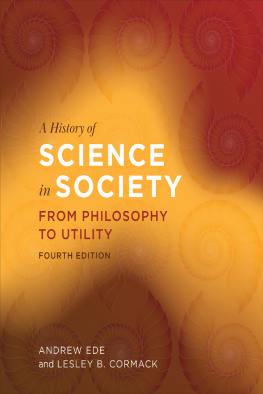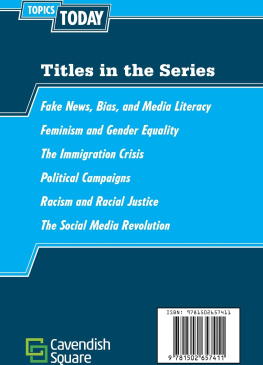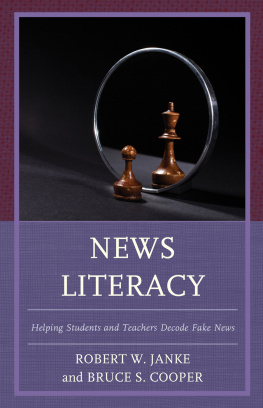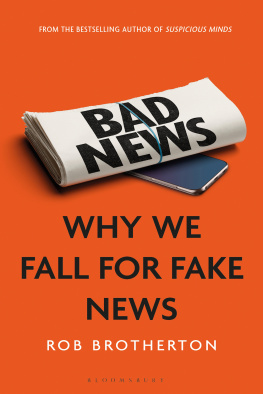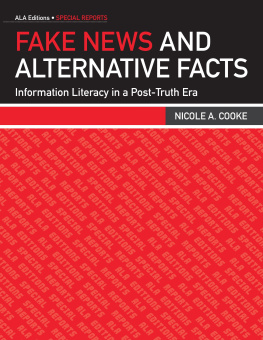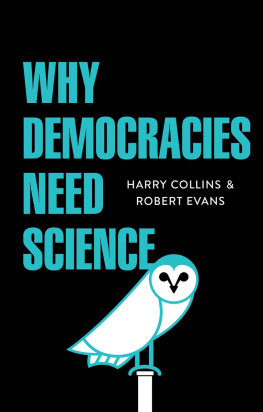First and largest thanks to Doctors James Smith and Joel Swann for their continued guidance, constructive criticism, encouragement and frankly bewildering faith in my abilities, Alfie Bown for help getting feet in doors, Jared and Alec along with all the writers and the team over at Wisecrack, Philosophy Now magazine, Lou, Miles, Phillipa, Jarrod, Gus & Kitty, Abi and David for being my only close Writer Pals and to Lesley, my mum, whose contribution to my writing and generally just keeping me alive is immeasurable. Finally, Thank You Carrie for your patience, enthusiasm, love and understanding, I hope our story is a good one and a long one.
Narrativisation is a pretty basic concept. We tell each other, and ourselves, stories pretty much sums it up. Most of the concepts discussed in this book have been developed in more depth elsewhere, the Russian Formalists theory of narratology is a good place to start if you wish to explore further. This book is an attempt to gather together disparate theories and philosophies that seem to be having such an effect on society today and hopefully make them more legible and approachable. They are all narratives after all.
I have done my best to generalise the discussion knowing how divisive contemporary analysis of almost any topic is and the near immediate criticism from those whose narratives differ. Unfortunately, no work is created in a vacuum and the context of this books creation is certainly to be understood as being from a point of view. While, as the author of this work, I may now be metaphorically dead to it, it was certainly written with intent and a hope that it reaches as wide an audience as possible to assist with criticism of culture and our daily lives that is already so prevalent in the digital age. It also seems clear to me that narrativisation is already widespread enough that it is necessary to understand it better, so it is not allowed to fall into the sole possession of those I so profoundly disagree with. Because, for me, this would be a grievous error.
The danger we are presented with currently is that we are giving equal weight to narratives without consistency and renewing credence for narratives that have already been dismissed. The demand for free speech that is ringing in our ears on a daily basis in the West (whatever that is) today is a largely Right-leaning narrative that overwhelmingly favours an attempt to resurrect delegitimised narratives of the past, about such things as race supremacy and binary gender roles. Free speech, as the Intellectual Dark Web would have it, is their narrative of oppression and is almost purely a future narrative. It relies on fear mongering and what ifs about the future to persuade others into agreeing with them, but this narrative is entirely solipsistic. There is no consensus nor consistency in these narratives they peddle, that capitalist nations and their leaders should be allowed to do as they please with impunity and that white people are some sort of oppressed sub-class. These are narratives of pure emotion, pure subjectivity. They meet the needs of a troublingly misinformed minority, and so an affected consensus is drawn up from this fledgling support; it is then that what they believe passes for objective evidence is used to support these narratives in an attempt to create consistency. The trouble is, the evidence they use is singular, pulled out from the whole, recontextualised to fit their narrative. Evidence about evolutionary hierarchies and physiological studies of feminine frailties are plucked from their source narratives and put inside a story about mens needs and their rights; it doesnt matter that there is no causal link between the evidence and the pronouncement, it just looks like it fits. Even simply using dated references that have been disputed or discredited at large by more rigorous means can be used as historical evidence to provide consistency. The end result is that you have a narrative that is totally inconsistent, with a limited consensus but it can just about pass as a story object, to be presented to the world at large. Then you gather another equally flimsy narrative, like the one about freedom of speech being under threat on university campuses (also without any solid evidence), and this helps prop up other narratives, like the ones about white nationalism and there being only two genders etc. On and on this goes until you have a series of matchstick houses held together with spit, string and ill will. Yet these are the types of narratives that are guiding the majority of discourse in the media and online today. I do not wish to name names on this topic as the most obvious perpetrators of this method get far too much publicity as it is, but the dangers of this practice to me at least are obvious, immediate and real. The impact and harm of allowing bad faith narratives to grow is worryingly visible today. It is essential that those of us who wish to challenge these narratives and see our own narratives of the future borne out attempt a less fractured method of narrative creation.
Cards on the table, as a devout Lefty I feel the need for better narrative use on the Left is essential and, sadly, lacking. To have a successful movement towards significant change requires a consistent narrative that enables consensus and retains emotion. On this point the Right and their occasional, unintentional allies in the centre have us beat. They are able to create emotional narratives to give life to their stories and then organise around them far better than the Left are currently willing or able to do. Despite protestations of solidarity, consistency and consensus is absent in most of the Lefts narratives today, and it is losing us ground to a highly mobilised, increasingly powerful Right. The Left, as we are all more than willing to point out, and with good intention, get bogged down in internal disputes that, while usually an attempt at clarification and inclusion, do result in poor optics. We look, and in some cases are, fractured and not unified. Our disputes are often legitimate, criticising the UK Labour Party for its mishandling of anti-Semitism is wholly valid for instance, but by allowing the narrative to be co-opted outside the Left and cynically overused to discredit the party is indicative of how poorly we understand presenting narratives, both good and bad. When we look at the successes of movements from history, they were able to create emotionally rich, evidence-based and widely agreed upon narratives that could subsume contrary ones, again, for both good and bad ends. We see this today in the way the global Right, despite being brazenly unpleasant and totally incompetent, is able to mop up supposedly moderate conservatives and foster discord among the centre and the Left while equally being able to absorb elements of reasonable centrist thinking. Right-wing leaders and parties across the world, far from appealing to the sensible, moderate voter, gain their support and control from leaning heavily into narratives of climate denial, race repression and delegitimising discussions over gender and sexuality, while also accommodating anyone favouring the individualist, neo-liberal consensus of the last 40 years or so. This commitment to narrative isnt fully adopted on the Left because it is, by its nature, exclusionary despite being populist, and that is generally not a compromise we are willing to accept.
The Left certainly have their narratives, but they tend to be disparate. Income inequality, poverty, reduction in global conflict, investment in modern technology, education, health care, all these and more are much needed narratives with clear, unambiguous messages but we tend to break into separate camps over how they should be achieved and to what extent. While understandable, it is frustrating to watch. We are not currently in control of the narrative because we are caught up in defining one.



